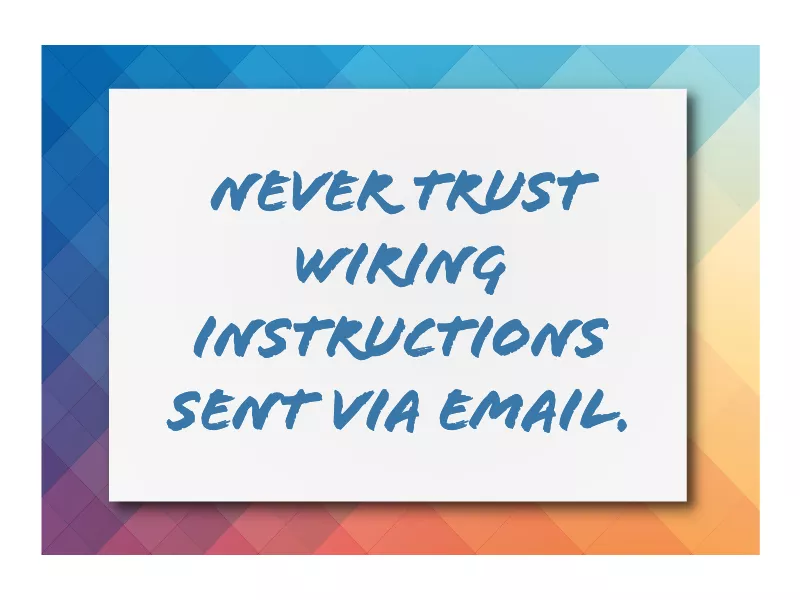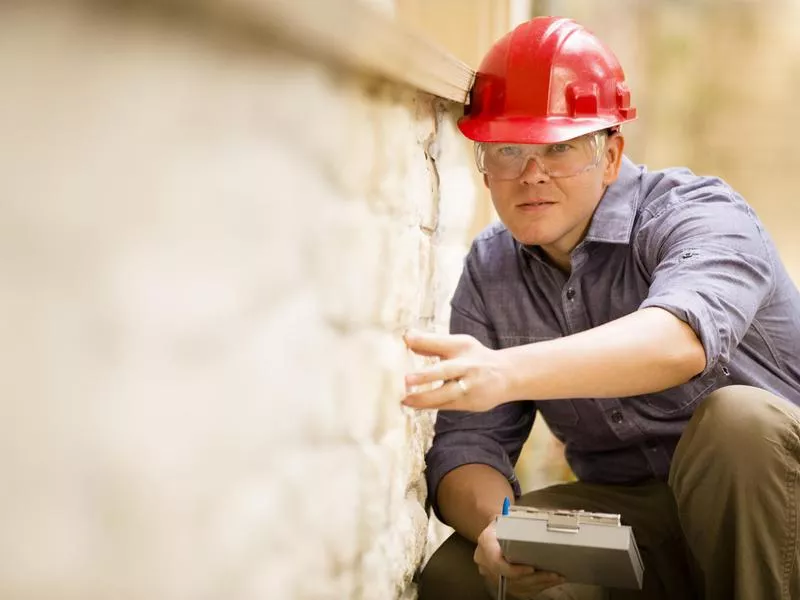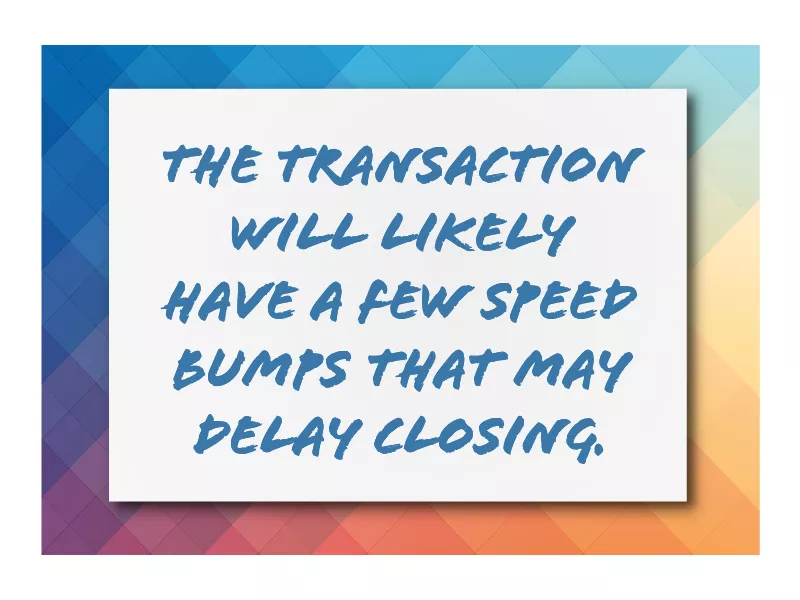You’ve been saving for your down payment and pinning your favorite home decor designs because this is the year you plan to buy your family home. But what should be an exciting process can quickly become stressful, even if you’ve been preparing for months.
Luckily, you’re not alone in your worries. About 5 million existing homes and 612,000 new construction homes were sold in the U.S. in 2017, according to the National Association of Realtors.
In an effort to help ease the home-buying process, FamilyMinded spoke with realtors across the country (and even a few abroad) to gather the lesser-known tips and pieces of advice they offer clients. Here are the most important considerations that realtors want you to know when you’re buying your family home.
Location, Location, Location

As the famous saying goes, “location is everything.” Despite the phrase’s popularity, however, realtors say that buyers often forget this simple mantra when purchasing their family home.
“Location is one of the most overlooked factors, believe it or not. Some people are blinded by the property, what it is and sometimes what it could be,” says Charlie Worrall, who works for U.K. real estate firm Ogilvy & Sneyd. “But you have to keep in mind that the area may not be the best for children. So, do a little bit of research beforehand; don’t just take the agent’s word for it.”
Trust Your Realtor — or Find a New One

Trusting your realtor is key when buying a house. Getty Images
In a perfect world, your realtor is going to find you your dream home without too much hassle. That’s why it’s crucial to trust your realtor during the process.
Victoria Ro, who works for Virginia-based real estate firm Pearson Smith Realty, says the first and most important thing she tells buyers is, “Trust your realtor. You’re going to need to be on the same side as them and know that they have your best interests at heart.
“Not only do they represent you, but they should also be your source of knowledge for the area and for helping you find a great home and investment for your family,” Ro adds. “I don’t often voice concerns about a home to my clients, so when I do, they need to trust that I’m doing it with their family in mind. They’ve hired me because of my expertise, and I want it to be valuable to them.”
If you’ve been working with your realtor for a while and haven’t felt the magic, then it is probably time to consider other options. “If you don’t have a relationship of trust with your realtor, it’s probably an indication that you need to find a new one,” Ro says.
Compromise Is Key

Many realtors say that compromising is key to finding the perfect home. Even your dream home could have a few things you don’t love. My husband and I recently bought our first home, and it was by far our top choice. I still hate the color of the kitchen cabinets and countertops, but it turns out that I don’t notice them on a daily basis.
“Understand that you will need to compromise somewhere. This is often due to a buyer’s wish list being bigger than their budget, but it can also be necessary because buying a family home typically involves more than one opinion and, more likely than not, those opinions are going to differ,” Ro says.
Sitting down and writing a list of “must-haves” and a separate list of “would be nice to have” can help get you in the mood to compromise. “Take time to decide together what your top priorities are and where you are willing to compromise, and then talk to your realtor to see if those things will be available to you in your budget,” Ro says. “Inventory has been particularly low over the last few years, and this can also mean compromise is necessary if you’re on a short timeline.”
Don’t Get Hung Up on Cosmetics

Be ready to fix up aspects of your home. Getty Images
Several other realtors FamilyMinded spoke with agreed that compromise, including with the home itself, could be vital in finding the right one. “Most make the mistake of judging or being influenced by too many mostly irrelevant or mostly cosmetic-type issues, such as worn carpeting, chipped paint, windows that stick, drawers that don’t close fully, etc.,” says Michael Edlen of Coldwell Banker.
To avoid getting caught up in additional issues, Edlen says to focus on the main aspects of the home. “If the location is ideal, size of interior spaces is suitable to their needs, and the price fits their budget, focus on those factors the most,” he adds.
It is doubtful that you’ll find a house that is 100 percent perfect, adds Matt Hernandez, a licensed real estate agent who also works for the real estate education company AceableAgent. “When you’re buying (especially if it’s an existing build), you’re likely not going to get a move-in ready house with every single feature and finish you want,” he says. “Some of that work will need to be done by you. Know what work you’re willing to do and what you aren’t. For example: Are you willing to replace a roof? Are you willing to repaint the exterior? Are you willing to deal with an unfinished basement?”
Consider Future Family Members

When buying a family home, it is essential to consider the size of your family now, but also crucial for buyers to examine how their family could expand in the future.
“When purchasing one’s first family home, never shop for your current family but rather your future family,” says mother-of-five Katherine Scarim, who also owns Island Bridge Realty in Jupiter, Fla. “As children grow, their need for space grows. They go from needing rattles to sporting goods and from happy to sharing a room with siblings to requiring privacy.”
Extra siblings aren’t the only family members to consider. At some point, your family home might need space for a grandparent as well. “What seems too big today will likely be just right a few years from now, saving the expense and energy of having to find a more appropriate home,” Scarim says.
Research Your Market

Knowing your real estate market is crucial in the process. Getty Images
If you live on the Pacific Coast, then you probably know how stressful the real estate market can be for buyers. Simply put, there aren’t enough affordable houses. But realtors want buyers to see that it is always crucial to understand what is going on in the community you’re looking to buy in.
“Know what kind of market you’re in. Is it a buyer’s market or a seller’s market? This will affect the way that you negotiate and how much you can push on certain items,” says Hernandez. “Know what is and is not a dealbreaker for you. This will simplify your hunt greatly.”
Don’t Use Email

If you can avoid using email for the financial transaction process of buying your home, do so.
“Never trust wiring instructions sent via email. Cybercriminals are hacking email accounts and sending convincing and sophisticated emails with fake wiring instructions,” Scarim advises. “Always independently confirm wiring instructions in person or via a telephone call to a trusted and verified phone number of a title/attorney or loan officer.”
Think About Your Lifestyle

A move to the mountains can be a drastic lifestyle change from city living. Getty Images
Buying a new house for the family could involve moving to a new city. Sometimes, your new community is vastly different than the one you’re leaving, so it’s important to remember what your new home will represent.
Tristan Roberts, of Tristan Roberts & Associates and Coldwell Banker Lake Tahoe, explains how he helps families who go through this transition in California. “I’ve been a real estate broker in North Lake Tahoe for 20 years. I mostly work with families from the San Francisco area that are either looking for a vacation home, or they are looking to relocate to Lake Tahoe from the San Francisco Bay Area,” Roberts says. “Their motivation is usually based on a desire to step away from their hectic and ultra-competitive city lives and reconnect with their kids and with nature.”
But to do that, families have to pick a house that will represent their family’s new lifestyle. “The new families from the city almost always have the best intentions, but they often fail to let go of the uber-competitive lifestyle and truly connect with their kids and with nature,” Roberts says. “For example: [They choose] homes that are newer and more impressive with media rooms over homes that back to the national forest, so the kids can explore nature.”
Roberts isn’t here to judge anyone, though. He went through the same struggle himself when he moved his wife and two boys to Lake Tahoe in 1995. “The transition wasn’t easy for me. I didn’t realize the pace I was used to running at and how this type of community is different. I often see new families struggle to get the most out of their new community,” he says.
Always Get the Inspection

In housing markets where sellers are more in demand than buyers, some families have started buying a home without an inspection. Realtors aren’t fans of this practice and for good reason: The client is getting into an unknown situation.
“You still need a home inspection. Just because it’s a family home doesn’t mean that there aren’t issues or significant repairs needed in the home that can cost you much more than anticipated,” says Nick Slocum, owner of Slocum Realty.
“Have a professional home inspector thoroughly go through the home and all of its major components,” Slocum says. “You should still want to ensure you’re getting a good value. I recommend having each party, the seller and the buyer, pay for an independent appraisal.”
In Fact, Inspect Everything

Buyers should learn as much as possible about the property. Getty Images
Now that you know the benefits of having a home inspection, realtors want you to consider having other parts of the house inspected by specialists, too. Coldwell Banker’s Edlen has been involved in the sale of more than 1,300 homes in his 30-plus year career and says buyers should learn as much as possible about the property.
“During the purchase process, buyers should be willing to invest in doing far more property investigation than just a basic building inspection to be sure that there aren’t any identifiable serious problems,” he says. “For example, a $250 sewer line scope might find a major crack and/or roots in the line that very soon would result in needed replacement and possibly cost them $10,000 or more.”
Plus, if you know what issues exist as a buyer, you can ask the seller for a credit to cover the estimated costs to fix said issues. We saved some serious money this way when we purchased our home.
Give Yourself Time

When starting your search for the perfect home, it’s crucial to give yourself as much time as possible. You never know what kind of crisis will pop up and delay the process.
“While your realtor will do everything to make sure you have a smooth transaction, buyers should know the transaction will likely have a few speed bumps that may delay closing or require some additional negotiation,” says James McGrath, co-founder of the New York real estate brokerage Yoreevo. “Maybe the seller is traveling and can’t be reached, or the inspection comes back with a few contentious items. Whatever the issue, you should never plan on a perfect timeline — always bake in some cushion.”
McGrath says that, while the delays typically won’t destroy the deal on your dream home, they could become a bigger issue if you had counted on that date. For example, give yourself some overlap on when your current lease ends and when you need to move into your new place. And don’t schedule painters for the day after closing in case the process takes longer. On that same note, hit your deadlines as a buyer to avoid unnecessary stress on the seller and the realtor.
“While this is partially advice for realtors to coach their clients, it is always good to put yourself in the seller’s shoes. They don’t have perfect transparency into your side of the transaction, so there will be a certain amount of skepticism when you say you’re doing your best to get a contract signed or get the commitment letter,” McGrath says. “Sometimes, buyers take it personally and think the seller views them as untrustworthy.”
Look at Your Home as an Investment

Buying a home can be an excellent investment. Getty Images
Another piece of advice Slocum offers to his clients is to remember that a home is always an investment. “Try to look at it from a business perspective as opposed to an emotional one,” Slocum says.
“Could you get a similar home that needs much less work for a comparable price? Is it the town or school district you really would like long term? Does it not only work for you now but also in the future?” he asks. “Even though it’s a family home, it may not be the best home for you.”
The right property will make you feel like you’re home and be a good investment.
Consider Additional Closing Costs

Jeremy Browne, vice president of TTR Sotheby’s International Realty, wants families to understand and consider the additional costs that come with owning a home.
“I want purchasers to understand the real financial investment they are about to make. For instance, just because they can be qualified for a specific mortgage amount, are they sure they are willing to invest that amount of their income toward their mortgage every month?” Browne asks. “Also, they need to consider the cost of taxes, utilities and other maintenance items like lawn care or repairs before committing to a sales price.”
Browne also advises families to consider additional costs when they’re in the process of negotiating with sellers. “Once they are under contract for a home, they should be sure to limit large purchases, which could affect their final loan approval. They should also understand that there could be more negotiating based on home inspections, HOA- required repairs and appraisal,” Browne says.
“With these negotiations, sometimes getting the last penny out of a seller can have adverse effects once the buyers move in. Perhaps that seller spoke to neighbors about the difficulty in getting to closing. Or maybe the sellers aren’t willing to be forthright about the ins and outs of the home that could be beneficial to the new homeowner,” Browne says. “In some cases, buyers should be ready to look at the transaction as more than just financial to close on good terms.”
Keep Saving, Even After You’ve Closed

Continue saving money to prepare for emergencies that may arise in a house. Getty Images
Most families know that they need to save a decent amount of money before they buy their first home. But it is equally important to keep saving, even after you’ve closed on your dream home. You are the landlord now, which means, when something needs fixing, you’re on the hook for it.
“Remember that a home can be a great investment, but it does cost money to run,” Ro says. “As much as we do due diligence with inspections and common sense, there are a lot of working pieces in a house that could go wrong. Keep a healthy amount set aside for emergencies, and remember to keep up with the maintenance of your home to minimize the need to tap into it.”